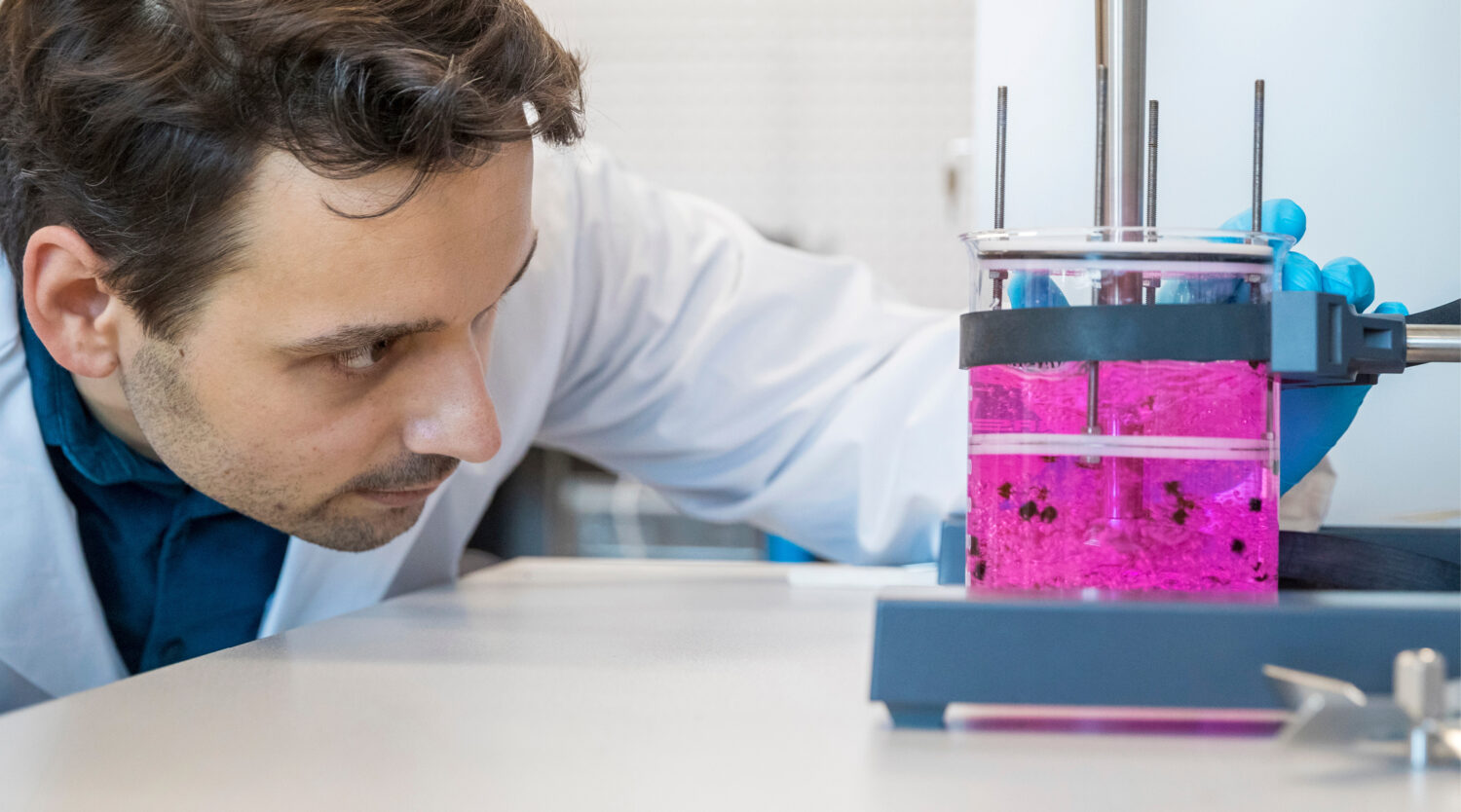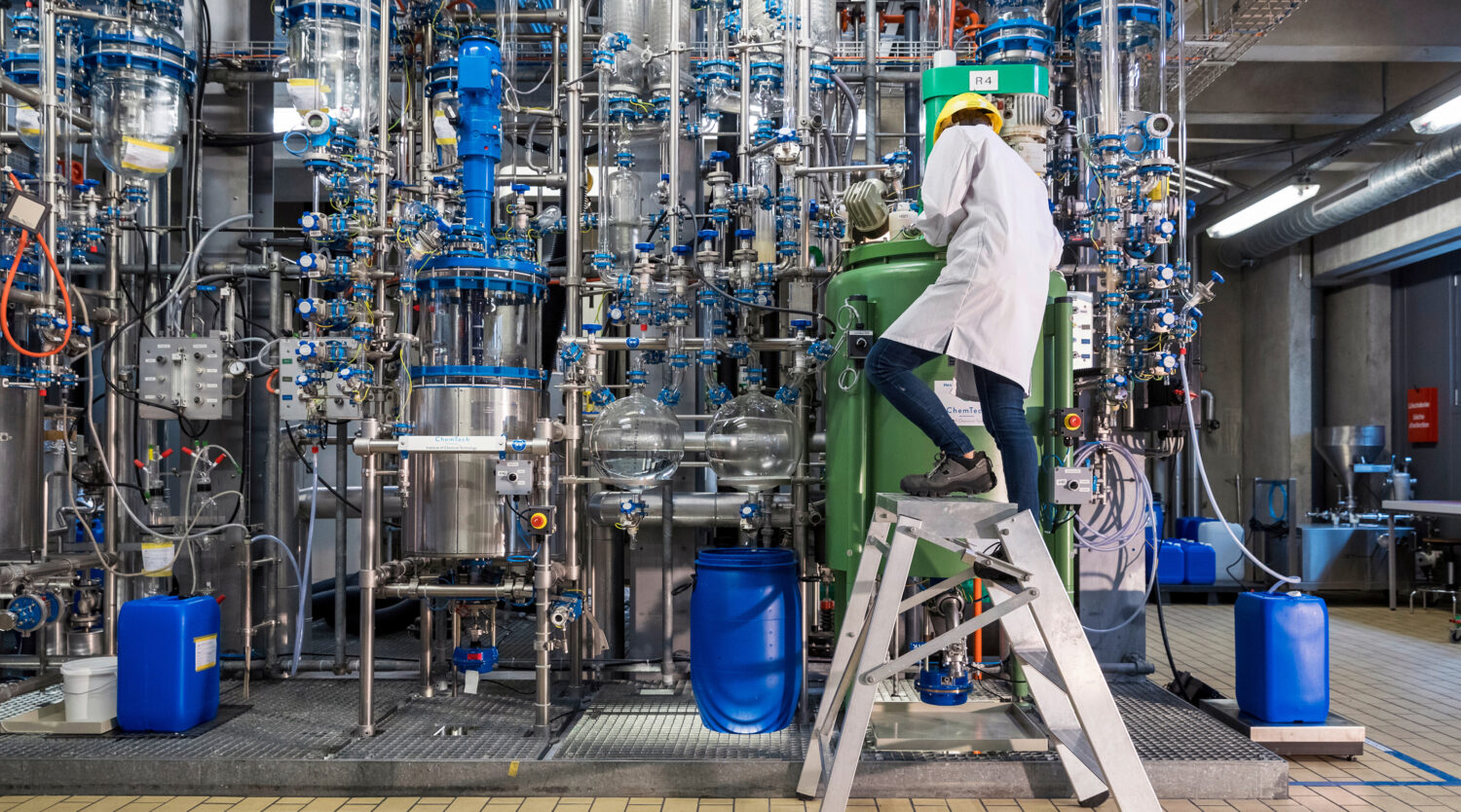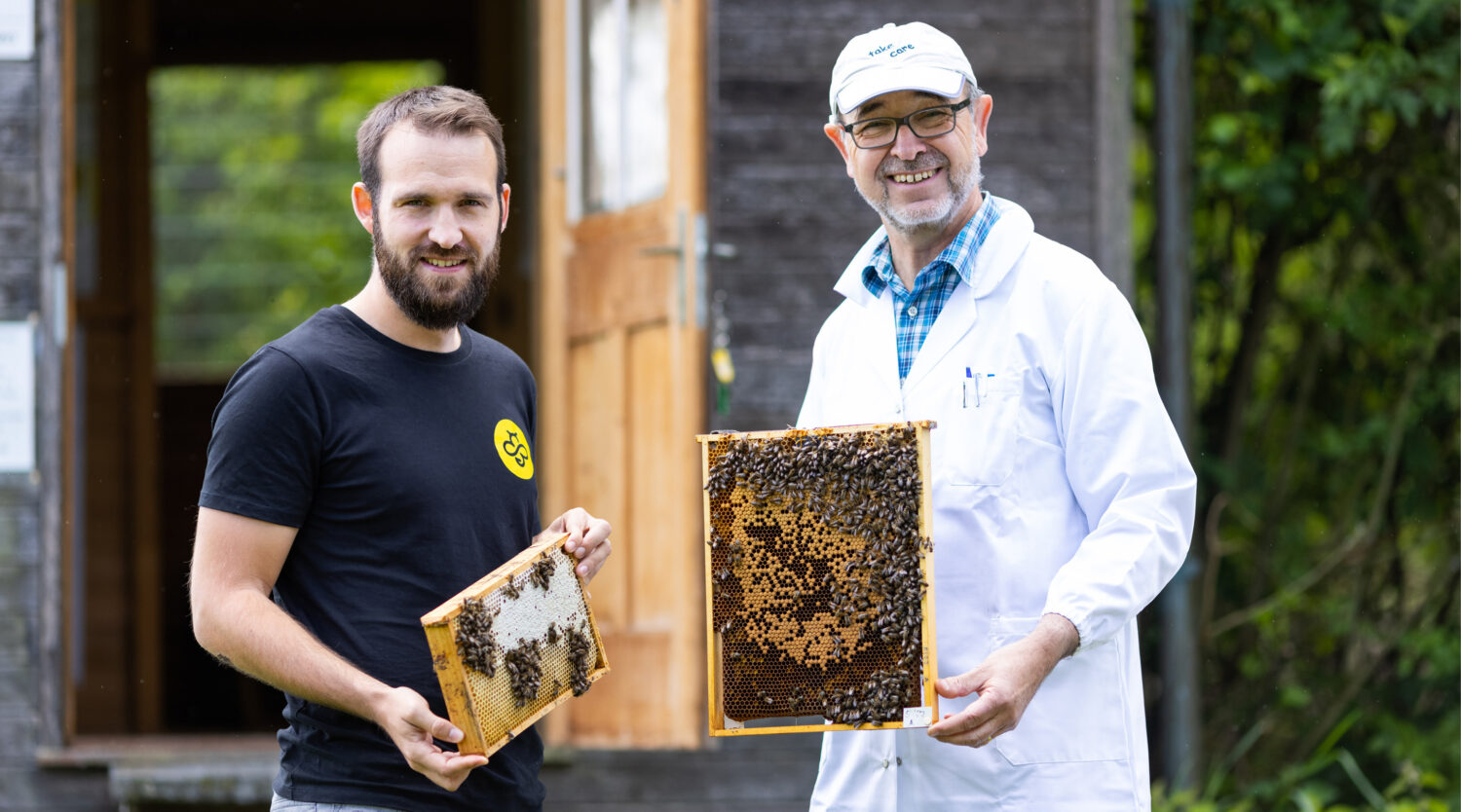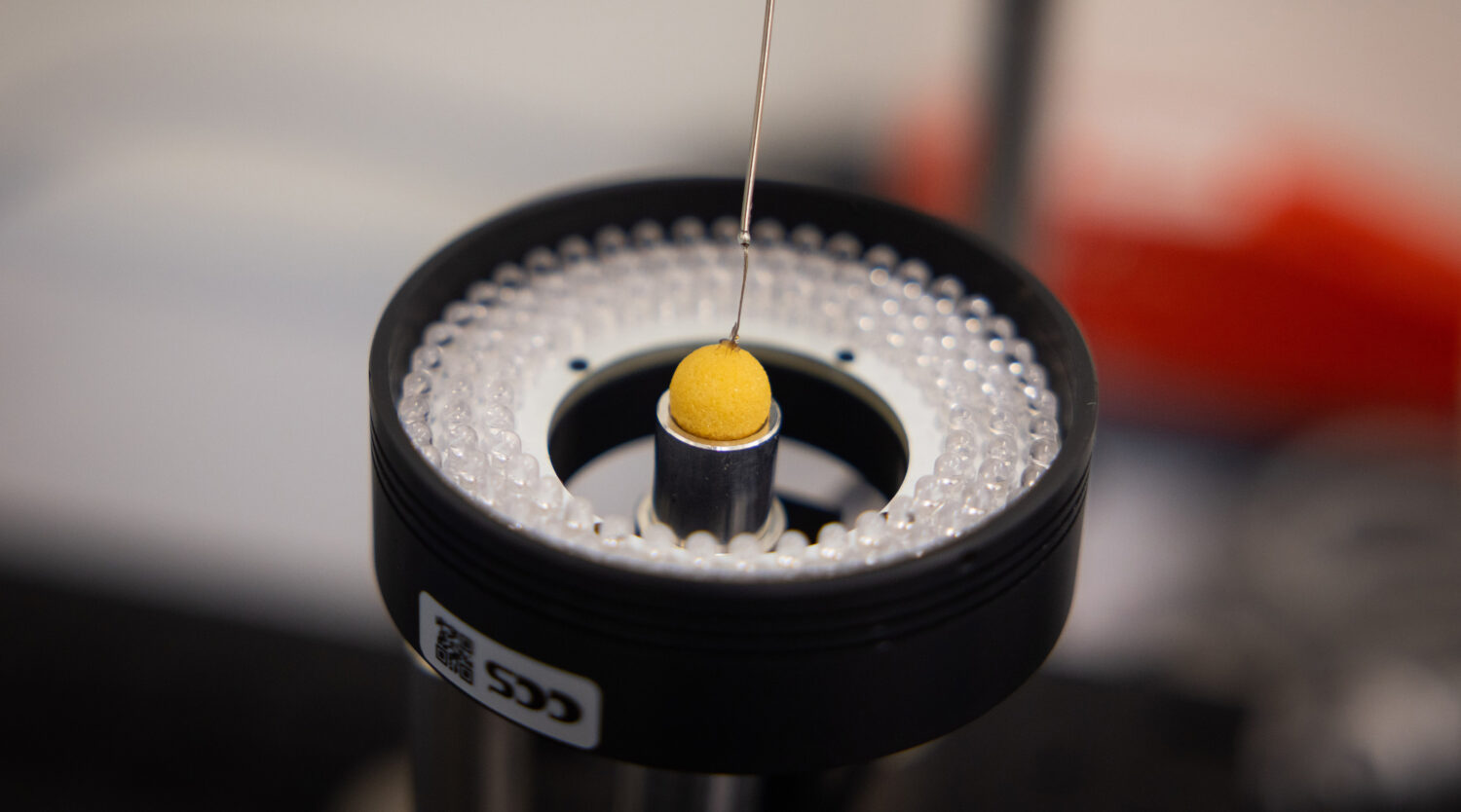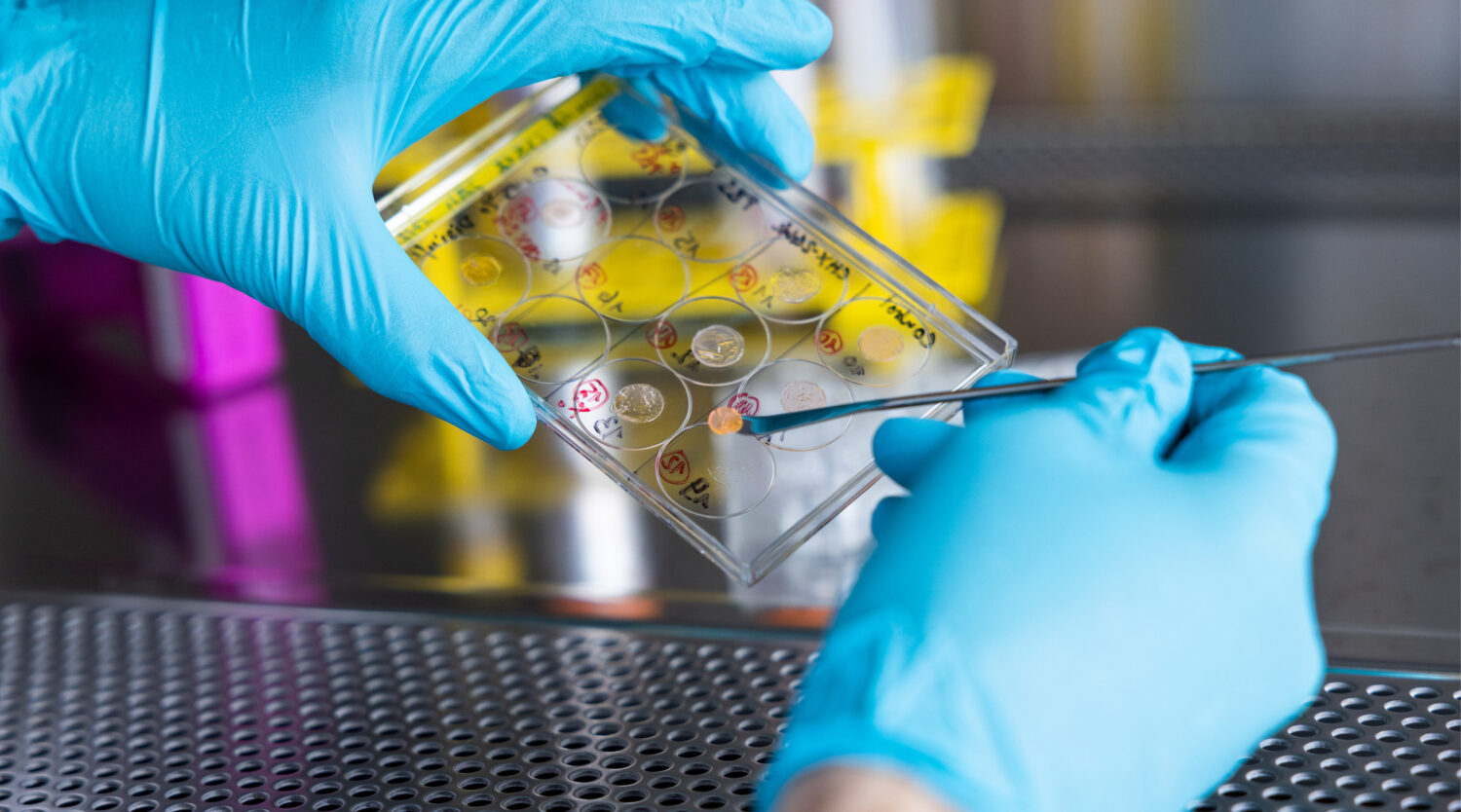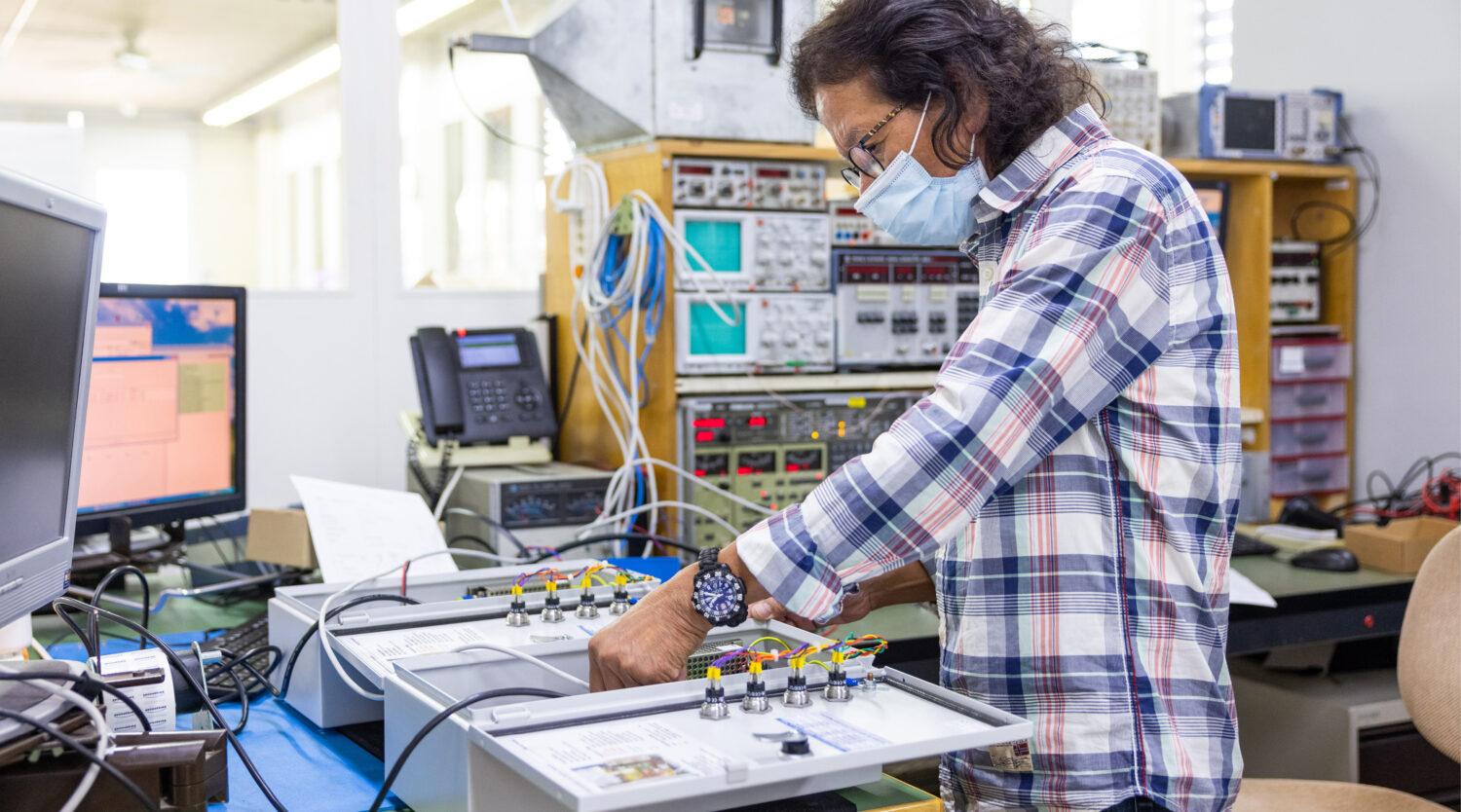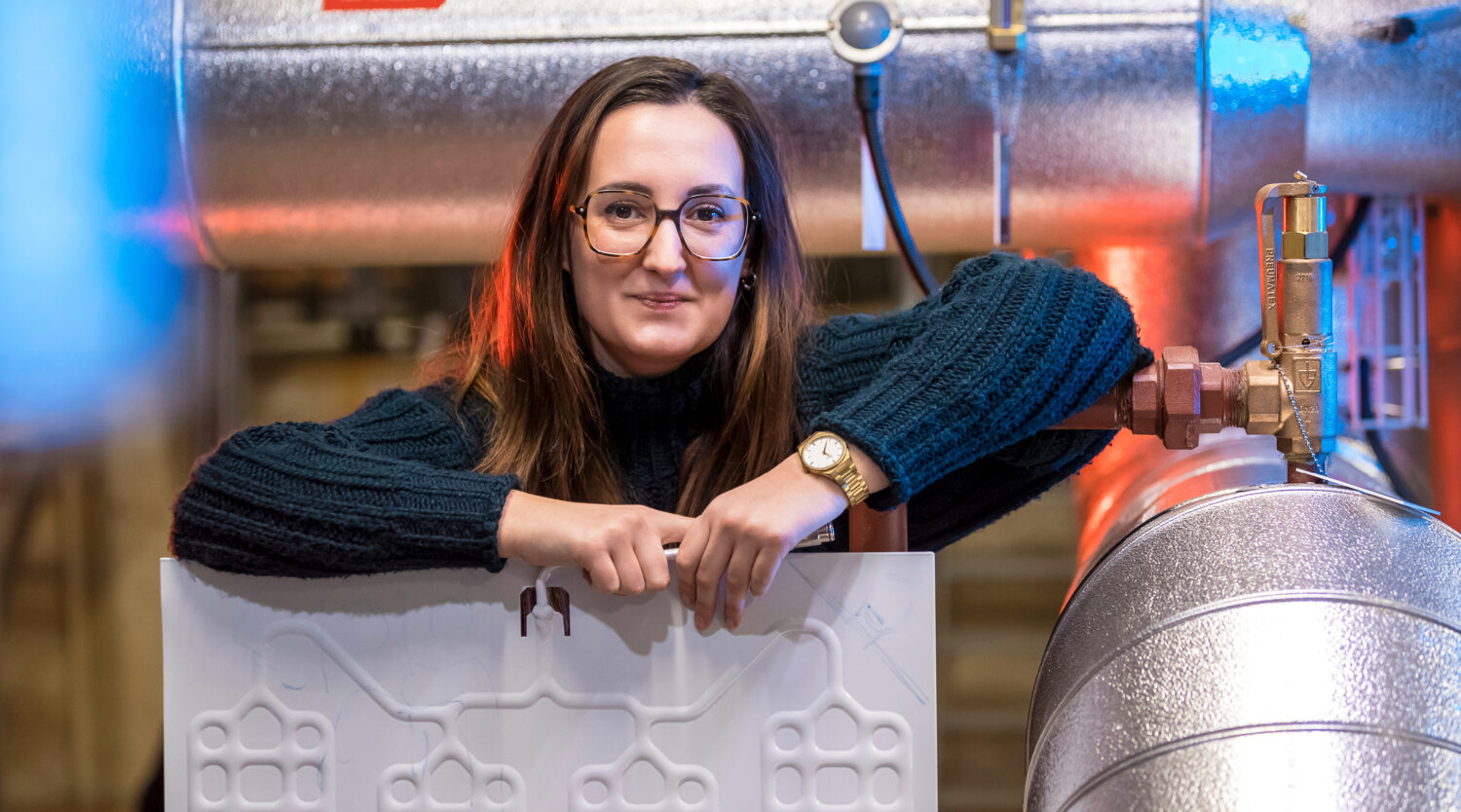
Sustainable energy from the underground car park
The blue and white metal panels hanging on a concrete wall in the underground car park in Lausanne’s Sébeillon quarter look like a billboard advertising a museum or a fashion exhibition. Appearances are deceptive: Each of these ten panels has a complex inner working that can be used to heat or cool an entire residential building.
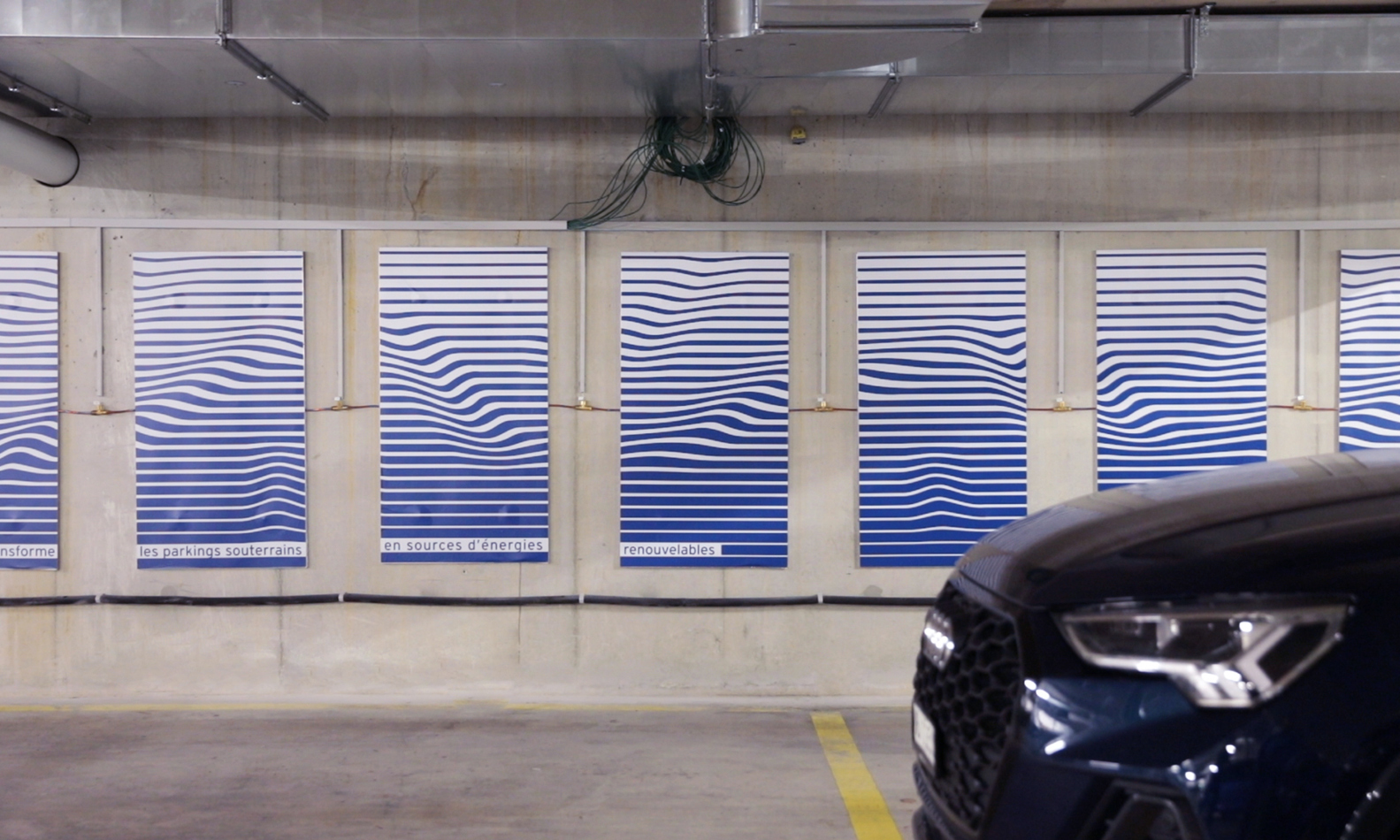
The principle is not new: Near-surface geothermal heat or geothermal energy takes advantage of the fact that the temperature below the earth’s surface remains constant throughout the year from just a few meters – unlike ambient air, which is colder than the earth’s interior in winter and warmer in summer. In combination with a heat pump, this temperature difference can be used to heat or cool buildings or technical systems.
In a pilot test in the Lausanne underground car park, each of these ten metal panels absorbs geothermal and ambient heat. The prefabricated panels contain heat exchanger tubes, in which a liquid circulates that changes temperature due to the heat and is then pumped upwards. A heat pump then distributes this energy throughout the building above. This energy supply works all year round, says Margaux Peltier, co-founder of the start-up Enerdrape. “The panels take advantage of the relatively constant temperature underground and can access a constant amount of energy – regardless of the outside temperature or time of year.”
While geothermal systems have so far been installed mainly in new buildings or during building renovations, Enerdrape’s prefabricated panels can be installed on concrete walls of existing underground spaces – for example, an underground garage or basement. Ideally, these walls are in direct contact with the ground.

“Innovation enjoys a higher priority in Switzerland than in other countries. We’re grateful to be able to do research and develop our ideas here.”
Margaux Peltier
Co-Founder EPFL spin-off Enerdrape
Lab access impossible due to COVID-19
Shortly after completing her master’s degree at EPFL, Margaux Peltier co-founded Enerdrape in mid-2021. For two years, she had previously tested the feasibility and market potential of the technology during various trials. She experimented with different fluids for heat exchange and different tube diameters.
Margaux Peltier received support from the Bridge funding programme offered by Innosuisse and the Swiss National Science Foundation (SNSF). “This support has helped me bridge the gap between basic research and science-based innovation. I received a year’s salary and was thus able to work 100 percent on the project – without taking a risk or worrying about money. It also helped cover the main costs of the pilot system.”
Due to the pandemic, the Bridge project was extended by six months until the end of May 2022 – originally, one year was planned. “Some of the material for the installation arrived late due to delivery problems. In addition, access to the lab was not possible at times.”
A cost-efficient and sustainable system
The aim of the Bridge project is the large-scale application of different panels. Previous tests had only been performed using one panel. “The idea worked on a small scale,” the researcher says. “Begging the question whether this can also be applied to a larger scale?” The answer quickly became clear, says Margaux Peltier. “The trial in the underground car park confirmed for us the ease of installation in such an environment and showed that the system is cost-effective. In addition, we received advice on how to make the system even more efficient.”
In this industry, upscaling is crucial. Two Swiss companies have already expressed their interest in additional trials. “Thanks to the installation in the Lausanne Garage, we were able to win customers for two larger pilot projects,” the start-up entrepreneur is thrilled to say.
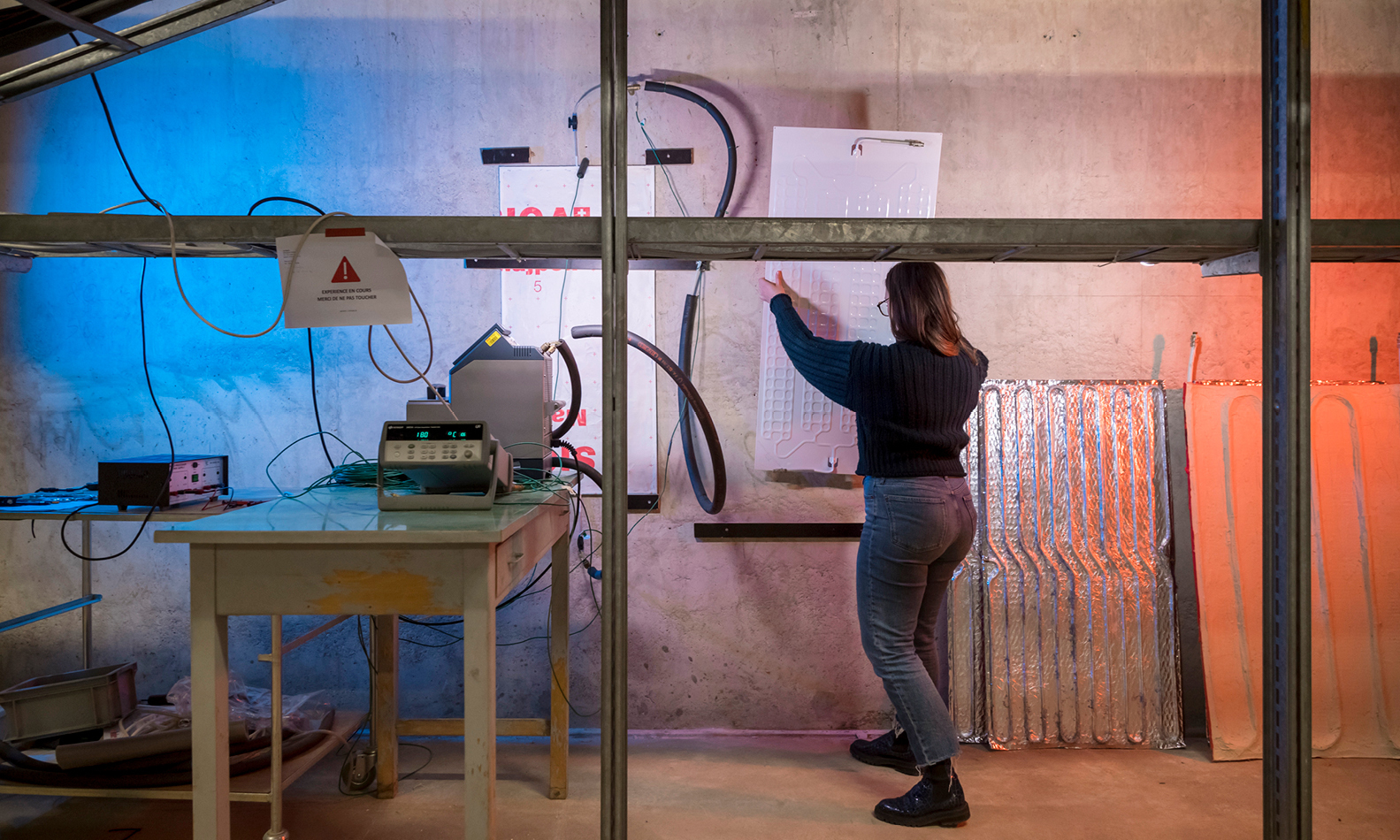
Enquiries from different countries
Innosuisse also offers support in the further development of the start-up. After Initial Coaching, Enderdrape is now in Core Coaching. This is very valuable, confirms Margaux Peltier, stating “Our coach Caroline Coquerel-Kokocinski helps us with important business issues such as strategy, market orientation or financing and helps us to work out the basics for the company. As an engineer, I know a lot about technology, but I had little idea about business issues before starting the company.”
The start-up is still in its early stages, but the EPFL spin-off already has big plans for the future: “We see great potential to launch our energy panels internationally. We already have enquiries from various companies in France, the UK, Canada, the Netherlands, the USA, or Germany seeking sustainable alternative solutions.”
The technology is mature enough for international expansion, says Margaux Peltier. But the start-up still needs time for successful marketing. “We have to grow first – and find the right partners. Especially in the energy industry, it is essential to know the different specifications and requirements of the individual world markets. If everything works out, we will have to produce our panels in series in other European countries in the future in order to be competitive. However, it is vital for us that we can conduct our research in Switzerland. Because innovation has a higher priority in this country than elsewhere. We’re grateful to be able to do research and develop our ideas here.”
Support from Innosuisse
- Start-up Coaching: Initial Coaching and Core Coaching
- Start-up Training: Innosuisse Business Concept (Module 2)
- BRIDGE – Proof of Concept
